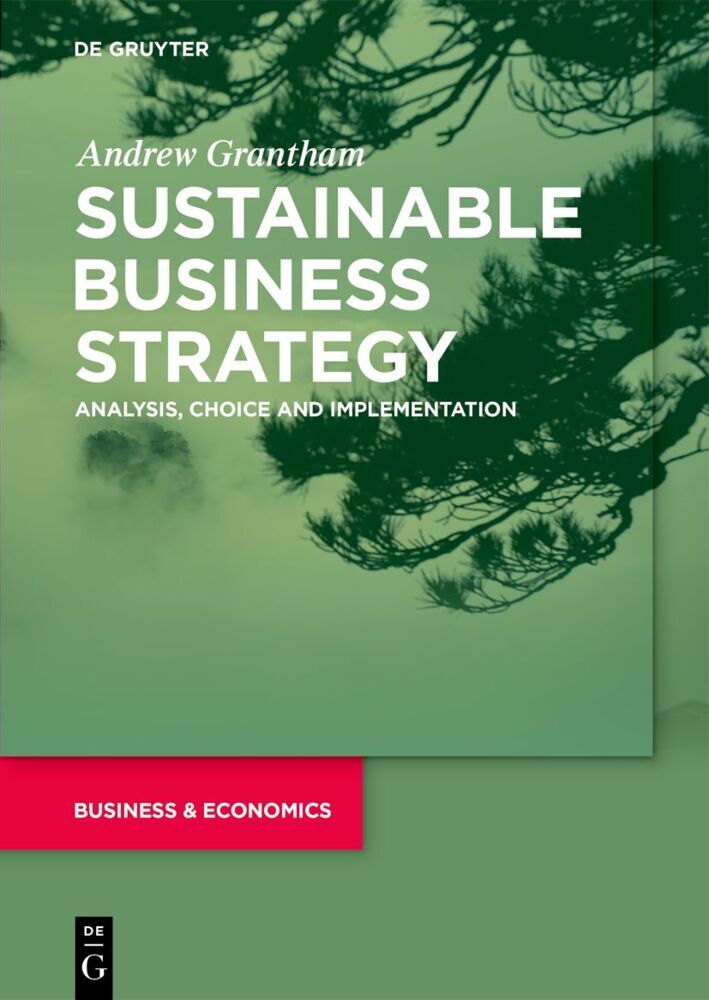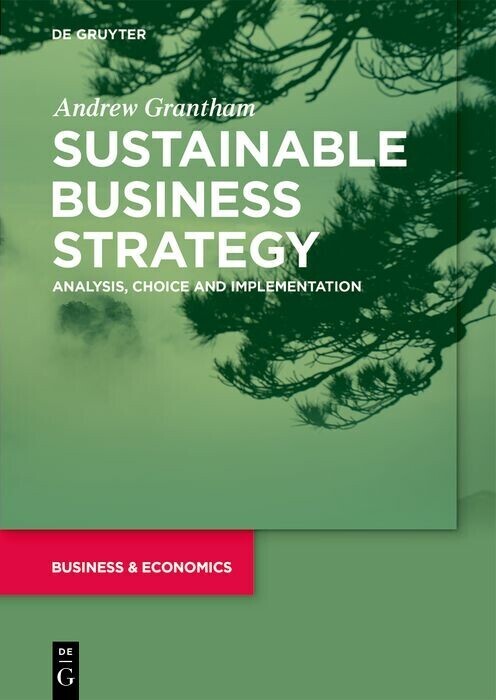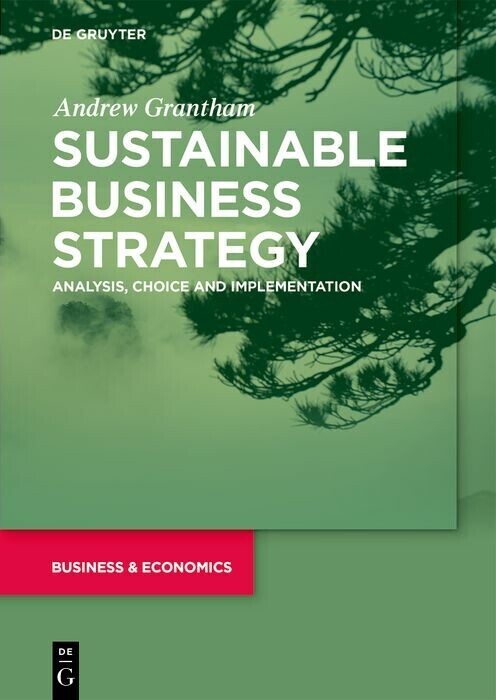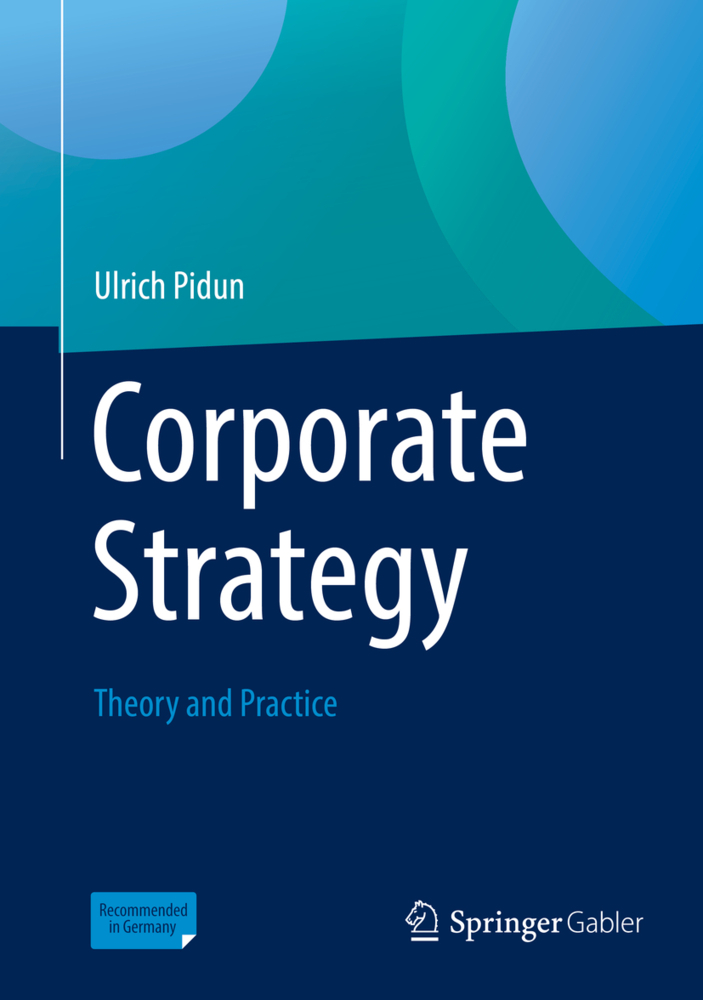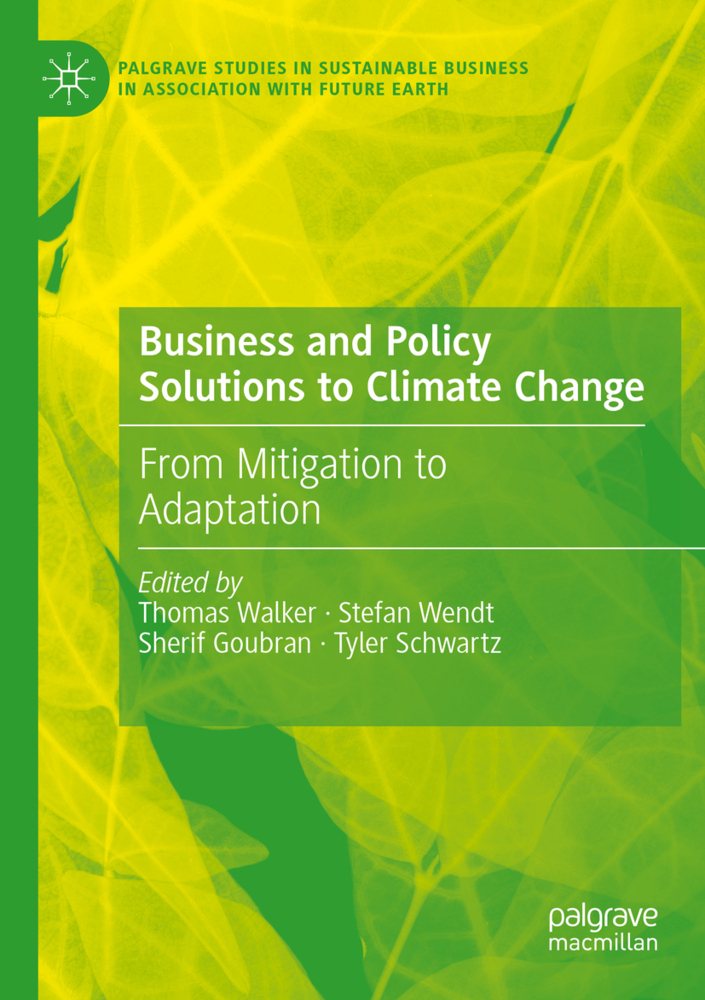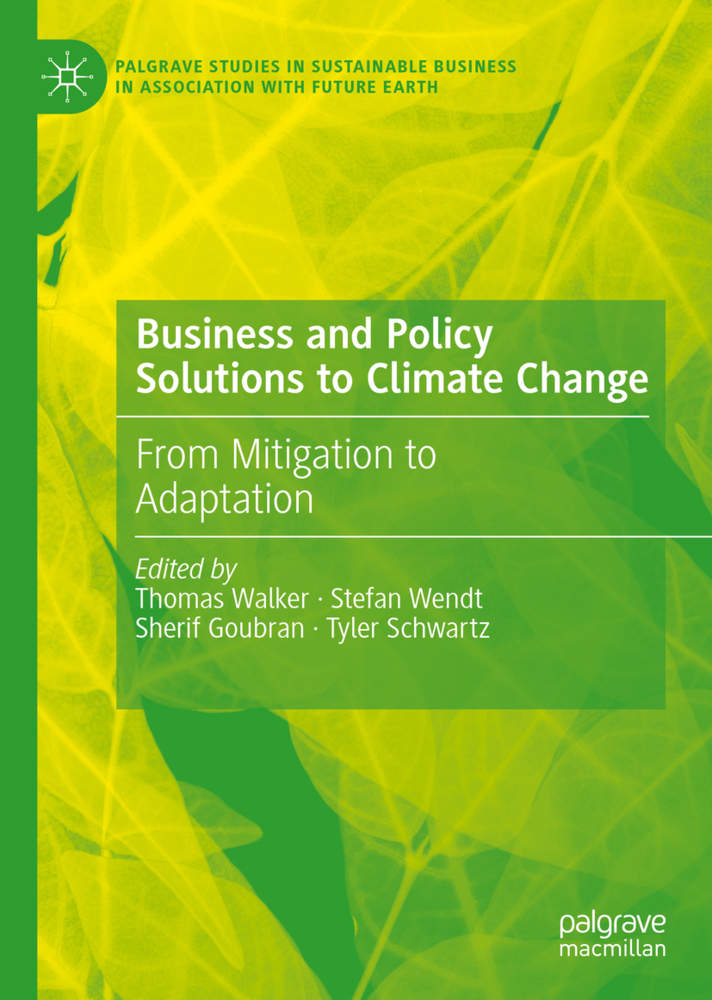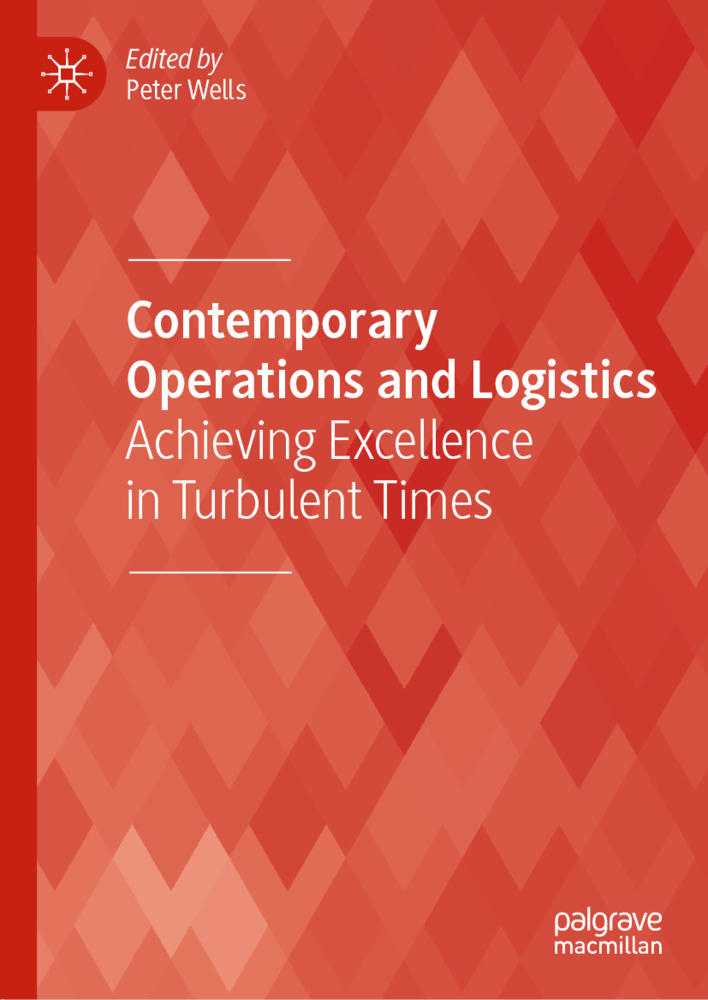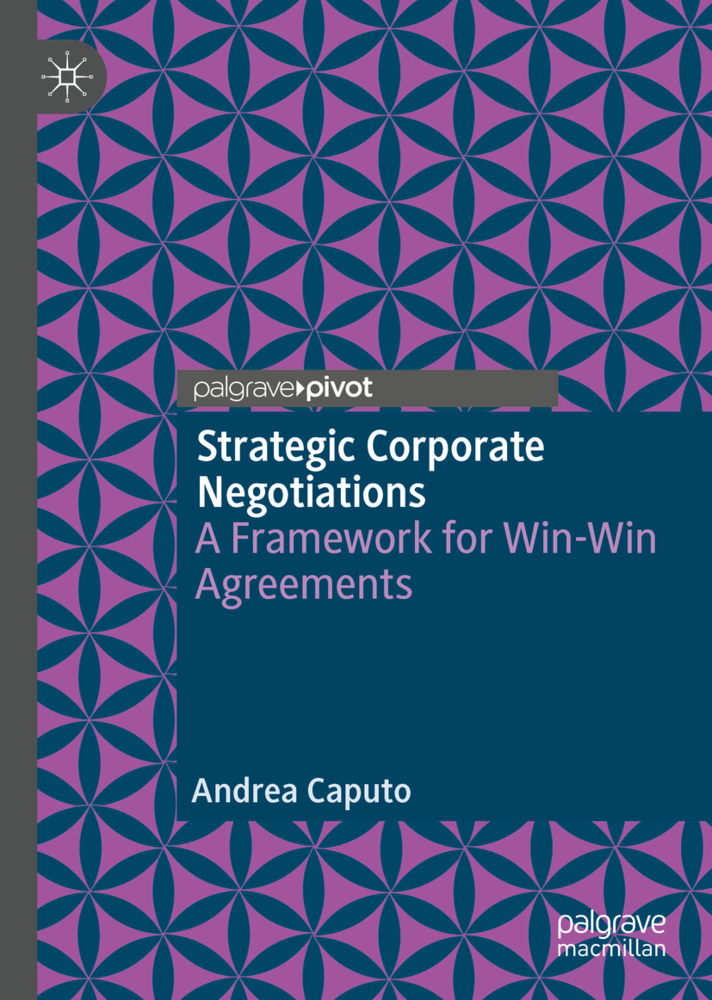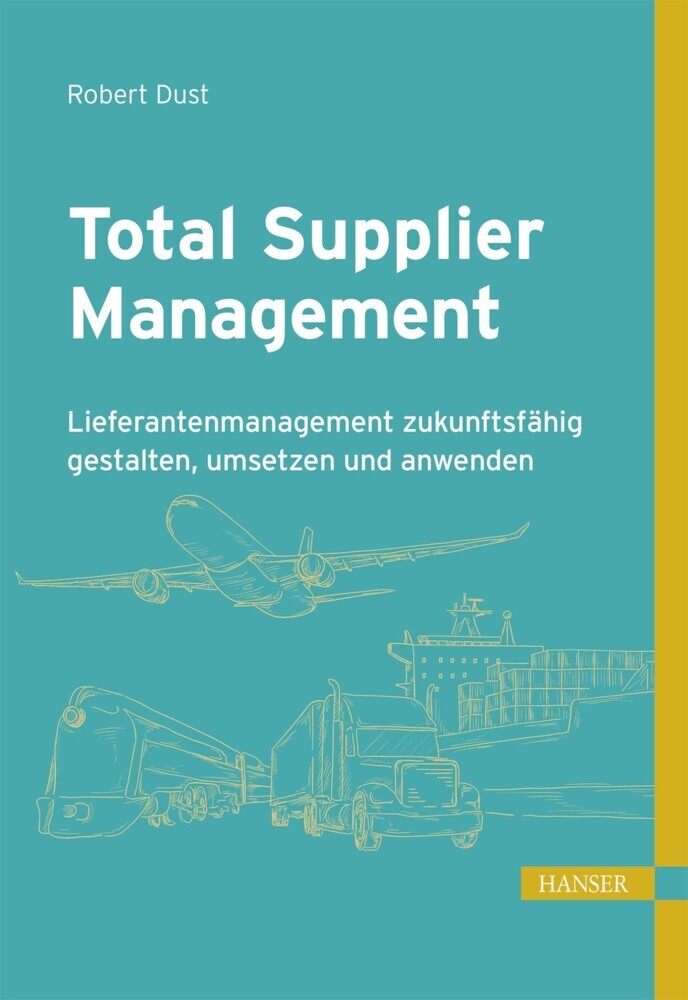Sustainable Business Strategy
Sustainable Business Strategy
In the twenty-first century, there is no single prescription for business strategy development, choice and implementation. The challenges facing firms, not-for-profit organizations and the public sector are significant and call for creativity, inclusivity, diversity and responsibility. The looming and deepening crisis of climate change, imperatives of the UN Sustainable Development Goals and global pandemics, have exposed the risks associated with an exclusive market worldview and the indicators that drive it such as GDP, stock market values, return on investment, executive remuneration, etc.
Sustainable Business Strategy augments and challenges existing texts to offer a progressive, challenging, decolonized and plural business strategy curriculum. Andrew Grantham presents existing business strategy theories, tools and techniques, introduces contemporary critiques, and offers fresh thinking about the application of the models and outcomes. The book takes the position that what we know about strategic analysis, choice and implementation needs updating and revision; while there remains a significant role for the market in a healthy, sustainable and future-oriented economy, strategic decisions will be mediated by regulation, broad stakeholder engagement and planetary boundaries.
This book is written to be used as a core text for students studying business or corporate strategy at undergraduate and master's levels. The author uses contemporary examples by way of illustration but seeks to guide readers to investigate the case in greater detail for themselves using references and hyperlinks. Questions and exercise sections in each chapter can be utilized in seminar classes and/or assessments.
Events around the book
Link to a De Gruyter Online Event in which the author Andrew Grantham together with Patricia Prado, Newcastle Business School discuss topics such as: How can businesses implement strategies that enable competitive growth and create shared value in a way that is truly sustainable during this era of climate change? What tools can analysts and strategists use to ensure sustainability is at the very core of business strategy?
The event will be moderated by Richard Freeman, founder and CEO of always possible:
https://youtu.be/0y6n93-6axw
Chapter 1: Introduction to strategy:
- strategy in the context of climate change: science of climate change and models; alternative economic models such as circular economies (zero waste, carbon negative);
- international organizations and regulatory frameworks;
- key figures in strategy and their ideas
- What is strategy?
- how to use the resource.
Part 1: Analysis
Chapter 2: The macro environment
- PESTEL (method and utilization);
- Scenarios (how to develop scenarios; investigating plausible futures);
- 5-Forces (Porter, criticisms, using the 5-Forces in the context of climate change);
- Industry life cycles
- Strategic groups
Chapter 3: The Micro environment - resources and capabilities
- Resource-based view of the firm (VRIO, contrast with Porter, mitigation, adaptation, VRIO and climate change,
- value chain vis-à-vis supply chains;
- SWOT/TOWS (existing use and methods; emphasizing the T as being the threat of climate change)
- Capabilities (dynamic), competences (core); building new competences necessary for current environment such as sustainability reporting and converting them into strategic resources.
Chapter 4: Stakeholders
- What is a stakeholder?
- Types of stakeholder
- management of and for stakeholders;
- power (3-dimensions)
- stakeholder utility
- stakeholders and environmental sustainability
Part 2: Choice
Chapter 5: Business strategy and models - generic strategies, the clock, competitive strategy, co-operative strategies
- Generic strategies/strategic clock (cost and price)
- Interactive strategies
- Cooperative strategies (beyond competitive advantage)
Chapter 6: Corporate strategy and diversification -
- Ansoff matrix (markets, products - new and existing)
- Vertical and horizontal integration
- portfolio management (BCG matrix, GE McKinsey, etc.)
Chapter 7: International strategy and globalization -
- Yip/drivers of internationalization
- Entry modes
- global value and production networks chains
- international trade
- Rodrik's Trilemma (pure globalization, democratic politics, nation states)
- Collapsing supply chains for sustainability
Chapter 8: Innovation
- models of innovation: product, process and business models
- entrepreneurship, intrapreneurship, real options
Chapter 9: Mergers, acquisitions and alliances
- distinctions and cases for one over another
- SAs as voluntary, time-limited, trust related cooperative approaches for sustainable growth
- Strategic fit and cultural fit in partner searching
- Indicators of success (beyond profit)
Chapter 10: The tools of evaluation - is it fit-for-purpose? Does it meet stakeholder needs, including shareholders? Can it be done?
- Tools of evaluation - performance, gap analysis (beyond profit);
- Addressing key opportunities and threats (TOWS)?
- Financial indicators - DCF, RoI, sensitivity analysis, RoCE.
- Resources and capabilities, opportunity costs
Part 3: Implementation
Chapter 11: Strategy development
- Politics (Mintzberg/power school)
- Deliberate and emerging strategy
Chapter 12: Structures
- structure follows strategy;
- functional, divisional, international, global
- control systems
- optimizing organizational structure
- corporate governance (single vis-à-vis 2-tier boards)
- employee ownership
Chapter 13: Leadership and change - leading and bringing others with you
- Leadership and styles (context, uncertainty, risk, turnaround)
- Types of change - radical/incremental; transformational/realignment
Chapter 14: Doing strategy
- who to involve, when and how
- planning
- project management
Chapter 15: Reflection
- What is strategy?
- First movers in responsible strategy - risks, rewards
- Fast seconds - risks, rewards
- No changers - risks, rewards
- Society - wellbeing. What is business for?
Grantham, Andrew
| ISBN | 9783110718188 |
|---|---|
| Artikelnummer | 9783110718188 |
| Medientyp | Buch |
| Copyrightjahr | 2022 |
| Verlag | De Gruyter |
| Umfang | XV, 296 Seiten |
| Abbildungen | 13 b/w and 7 col. ill., 45 b/w tbl. |
| Sprache | Englisch |

